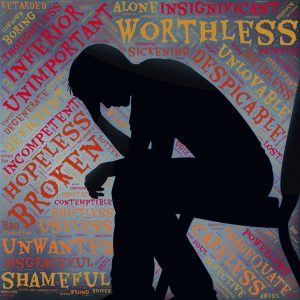The Emotional and Mental Health Effects of HGH Deficiency
What are the emotional effects of adult-onset HGH deficiency?
 Adult-onset growth hormone deficiency (AGHD) can have various emotional effects on individuals. These effects can vary from person to person and may depend on the severity of the deficiency, as well as other individual factors. Some of the emotional effects associated with AGHD may include:
Adult-onset growth hormone deficiency (AGHD) can have various emotional effects on individuals. These effects can vary from person to person and may depend on the severity of the deficiency, as well as other individual factors. Some of the emotional effects associated with AGHD may include:
- Depression: AGHD can contribute to feelings of sadness and depression. Low growth hormone levels have been linked to alterations in brain chemistry that can affect mood regulation.
- Anxiety: Some individuals with AGHD may experience increased anxiety, leading to excessive worry, restlessness, and nervousness.
- Irritability: AGHD can result in mood swings and irritability, which can affect an individual's interactions with others.
- Low Self-Esteem: Changes in body composition, such as increased body fat and reduced muscle mass, can impact self-esteem and body image. This may lead to feelings of self-consciousness or dissatisfaction with one's appearance.
- Reduced Motivation: AGHD can contribute to a lack of motivation and decreased interest in activities. Individuals may find it challenging to set and achieve goals.
- Fatigue: Persistent fatigue and a general lack of energy are common emotional consequences of AGHD. This can lead to a sense of lethargy and difficulty in engaging in daily activities, including sexual activity.
- Social Withdrawal: The emotional symptoms associated with AGHD, such as depression and anxiety, can lead to social withdrawal and reduced social engagement. This may result in feelings of isolation and loneliness, as well as harming or preventing the formation of romantic/sexual relationships.
- Cognitive Changes: AGHD can impact cognitive function, leading to difficulties with memory, concentration, and mental sharpness. This may affect an individual's ability to perform tasks and make decisions or even cause him to lose his job. In some cases, the emotional effects of this – feeling that one is losing one’s ability to even think – has led to job loss and feelings of uselessness and hopelessness.
 It's important to note that the emotional effects of AGHD can overlap with symptoms of other medical or psychological conditions. Diagnosis and management of AGHD involves a comprehensive evaluation by our specialist clinic, including hormone testing and an assessment of an individual's overall emotional well-being.
It's important to note that the emotional effects of AGHD can overlap with symptoms of other medical or psychological conditions. Diagnosis and management of AGHD involves a comprehensive evaluation by our specialist clinic, including hormone testing and an assessment of an individual's overall emotional well-being.
Treatment for AGHD often includes hormone replacement therapy with synthetic (and bioidentical) growth hormone (GH). If you suspect you may have AGHD and are experiencing emotional symptoms, it's essential to consult with our clinic for a proper diagnosis and guidance on potential treatment options. Addressing AGHD can help alleviate these emotional effects and improve overall well-being.
What if my emotional state has declined, and my isolation has increased, to the point that I don't want to engage with other people, whether in person or on the telephone?
 If your emotional state has declined to the point where you're experiencing increased isolation and a reluctance to engage with other people, it's important to seek help and support. These feelings may be indicative of underlying emotional or psychological issues that should not be ignored. Here are some steps you can consider:
If your emotional state has declined to the point where you're experiencing increased isolation and a reluctance to engage with other people, it's important to seek help and support. These feelings may be indicative of underlying emotional or psychological issues that should not be ignored. Here are some steps you can consider:
- Talk to a Mental Health Professional: Reach out to a mental health professional, such as a therapist, counselor, or psychologist, who can provide you with the necessary guidance and support. They can help you explore and address the reasons behind your emotional decline and social isolation.
- Medical Evaluation: If you suspect that your emotional state may be related to physical health issues, including hormonal imbalances such as Adult Growth Hormone Deficiency (AGHD), consult our clinic. We can conduct a comprehensive evaluation and recommend appropriate tests or treatments. Even if it seems hard now, make yourself take this easy first step to restring your health. Everything else in your life may depend upon it.
- Reach Out to Friends and Family: Even if you don't feel like engaging with others, consider reaching out to trusted friends or family members. Sharing your feelings with someone you trust can be therapeutic and may lead to a sense of connection and support. Perhaps one of them can be with you when you make the call to our clinic or go to your testing appointment!
- Online Support Groups: If face-to-face or phone interactions feel overwhelming, you can explore online support groups or communities related to mental health or specific concerns you may have. These platforms provide a more anonymous and low-pressure way to connect with others who may be experiencing similar challenges.
- Self-Care: Prioritize self-care activities that promote emotional well-being. This can include regular exercise, maintaining a healthy diet, getting adequate sleep, and engaging in relaxation techniques such as meditation or mindfulness.
 Set Small Goals: Gradually work on setting and achieving small, manageable goals, even if they are as simple as going for a short walk or reaching out to a friend via text message. These small steps can help you regain a sense of control and accomplishment.
Set Small Goals: Gradually work on setting and achieving small, manageable goals, even if they are as simple as going for a short walk or reaching out to a friend via text message. These small steps can help you regain a sense of control and accomplishment.- Emergency Support: If you ever feel that you are in crisis or experiencing thoughts of self-harm or suicide, seek immediate help. Reach out to a crisis hotline, a mental health professional, or go to the nearest emergency room for assistance.
Remember that seeking help and support, and making that first appointment at our clinic, is a sign of strength, and we are here to assist you on your journey to regaining your health, even during difficult times. You don't have to face these challenges alone, and there is definitely hope for improvement in your emotional well-being and social connections.
- 0001 Serostim Bio-identical Hgh Injections [Last Updated On: August 14th, 2025] [Originally Added On: July 31st, 2020]
- 0002 Smart And Simple Tips To Boosting Your Hgh Production [Last Updated On: August 9th, 2025] [Originally Added On: August 1st, 2020]
- 0003 Ten Tips For Naturally Enhancing Human Growth Hormone Production [Last Updated On: June 12th, 2025] [Originally Added On: August 4th, 2020]
- 0004 How To Safely Inject (HGH) Human Growth Hormone [Last Updated On: April 2nd, 2025] [Originally Added On: August 5th, 2020]
- 0005 Can Hgh Injections Help You Manage Your Weight More Effectively? [Last Updated On: June 11th, 2025] [Originally Added On: August 6th, 2020]
- 0006 Do Not Buy Hgh Sprays As Scams [Last Updated On: June 10th, 2025] [Originally Added On: August 8th, 2020]
- 0007 Can Human Growth Hormone Really Slow Down Aging? [Last Updated On: June 9th, 2025] [Originally Added On: August 9th, 2020]
- 0008 The Potential Side Effects Of Human Growth Hormone (HGH) [Last Updated On: February 16th, 2025] [Originally Added On: August 10th, 2020]
- 0009 Beware Hgh Scams: Only Use Bio-identical Growth Hormone [Last Updated On: April 22nd, 2025] [Originally Added On: August 13th, 2020]
- 0010 Human Growth Hormone Replacement Therapy For Hgh Deficiency [Last Updated On: September 11th, 2025] [Originally Added On: August 14th, 2020]
- 0011 How Does The Human Body Produce Human Growth Hormone? [Last Updated On: May 15th, 2025] [Originally Added On: August 17th, 2020]
- 0012 Do Not Buy Hgh Pills As Scams [Last Updated On: May 14th, 2025] [Originally Added On: August 18th, 2020]
- 0013 Hgh Injections From Mexico Are Dangerous And Illegal [Last Updated On: February 14th, 2025] [Originally Added On: August 19th, 2020]
- 0014 Human Growth Hormone Menopause Treatment [Last Updated On: February 20th, 2025] [Originally Added On: August 20th, 2020]
- 0015 Hormone Replacement Therapy Protects The Minds Of Hgh Deficient Patients [Last Updated On: May 12th, 2025] [Originally Added On: August 21st, 2020]
- 0016 Hgh Illegal Or Legal [Last Updated On: May 17th, 2025] [Originally Added On: August 22nd, 2020]
- 0017 How To Inject Hgh And Testosterone Safely And Easily [Last Updated On: May 13th, 2025] [Originally Added On: August 23rd, 2020]
- 0018 Human Growth Hormone Medical Research [Last Updated On: February 17th, 2025] [Originally Added On: August 24th, 2020]
- 0019 The Healing Properties Of Human Growth Hormone [Last Updated On: May 11th, 2025] [Originally Added On: August 25th, 2020]
- 0020 Hgh Therapy For Woman [Last Updated On: February 12th, 2025] [Originally Added On: August 26th, 2020]
- 0021 Hgh Therapy For Men [Last Updated On: April 19th, 2025] [Originally Added On: August 27th, 2020]
- 0022 How Does Age-related Hgh Decline Impact Health? [Last Updated On: February 17th, 2025] [Originally Added On: August 29th, 2020]
- 0023 Human Growth Hormone Injections Can Improve Joint Recovery After Injury [Last Updated On: May 10th, 2025] [Originally Added On: August 30th, 2020]
- 0024 The Anabolic And Bodybuilding Effects Of Bio-identical Hgh Injections [Last Updated On: May 9th, 2025] [Originally Added On: August 31st, 2020]
- 0025 Does Human Growth Hormone Really Have Healing Power? [Last Updated On: May 7th, 2025] [Originally Added On: September 1st, 2020]
- 0026 Getting HGH Growth Hormone Online [Last Updated On: May 8th, 2025] [Originally Added On: September 3rd, 2020]
- 0027 Buying Hgh [Last Updated On: June 4th, 2025] [Originally Added On: September 5th, 2020]
- 0028 Increase Your Potential With Hgh! [Last Updated On: June 3rd, 2025] [Originally Added On: September 6th, 2020]
- 0029 Can Bio-identical Hgh Help You Live The Life You Want? [Last Updated On: February 17th, 2025] [Originally Added On: September 8th, 2020]
- 0030 How Hgh Improves Libido [Last Updated On: February 17th, 2025] [Originally Added On: September 9th, 2020]
- 0031 Can Human Growth Hormone Speed Up Physical Rehabilitation [Last Updated On: September 17th, 2025] [Originally Added On: March 14th, 2021]
- 0032 A Beginner's Guide To Human Growth Hormone Replacement Therapy [Last Updated On: February 19th, 2025] [Originally Added On: March 16th, 2021]
- 0033 Can Hgh Injections Help You Live A Healthier And Happier Life? [Last Updated On: September 16th, 2025] [Originally Added On: March 19th, 2021]
- 0034 Buy Hgh Injections For An Introduction To Growth Hormone Therapy [Last Updated On: November 12th, 2022] [Originally Added On: March 20th, 2021]
- 0035 Improve Sexual Performance With Hgh Injections [Last Updated On: February 14th, 2025] [Originally Added On: May 12th, 2022]
- 0036 Understand The Risks Of Human Growth Hormone Overdose And Abuse [Last Updated On: October 15th, 2025] [Originally Added On: May 24th, 2022]
- 0037 Racing Ferraris – A Stressful Way to Earn a Living [Last Updated On: March 19th, 2025] [Originally Added On: July 12th, 2022]
- 0038 HGH: The Happiness Hormone [Last Updated On: March 26th, 2025] [Originally Added On: August 15th, 2022]
- 0039 Government, Contractor, and NGO Productivity, Efficiency, and HGH [Last Updated On: February 24th, 2025] [Originally Added On: September 7th, 2022]
- 0040 Without HGH, You Might as Well Be Dead [Last Updated On: March 11th, 2025] [Originally Added On: September 16th, 2022]
- 0041 Study Suggests Women Can Sniff Out Single Men [Last Updated On: April 23rd, 2025] [Originally Added On: February 17th, 2023]
- 0042 Geographic Distribution of HGH Deficiency [Last Updated On: May 3rd, 2025] [Originally Added On: July 13th, 2023]
- 0043 Sudden Onset of HGH Deficiency [Last Updated On: September 8th, 2025] [Originally Added On: September 22nd, 2023]
- 0044 Understanding Hormone Replacement Therapy for Menopause [Last Updated On: February 6th, 2025] [Originally Added On: February 6th, 2025]
- 0045 Unveiling the Magic of Human Growth Hormone: A Colorful Spectrum in Medical Marvels [Last Updated On: February 16th, 2025] [Originally Added On: February 13th, 2025]
- 0046 Introduction: The Demand for Health-focused Care in Professional Environments [Last Updated On: February 15th, 2025] [Originally Added On: February 15th, 2025]
Word Count: 903






